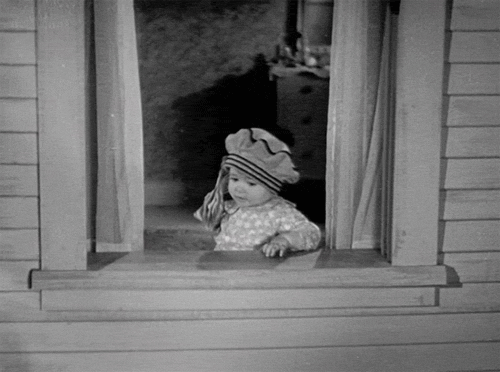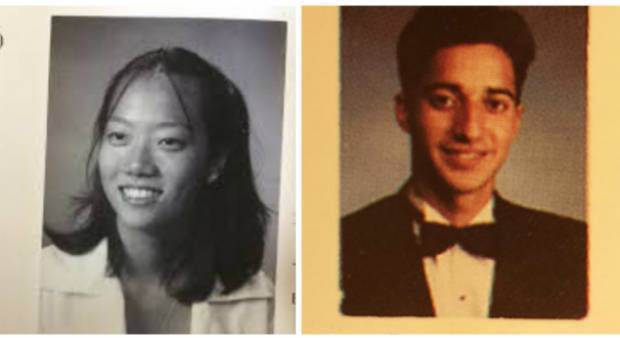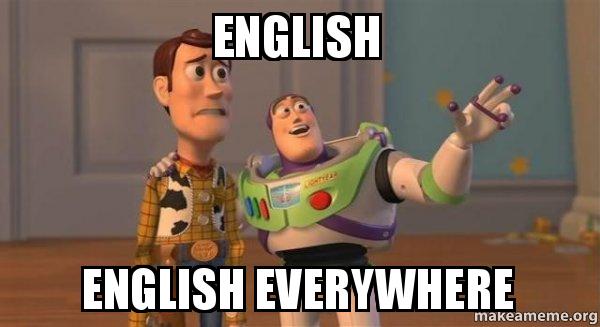
Three Day Road uses ulterior messaging through the main characters’ life stories to exploit the cultural genocide caused by residential schooling, capitalism, and colonialism that affected indigenous people in Canada for decades. Even today, we can see how the physical and psychological events are still affecting Canada tremendously through poor education, drug abuse, and high suicide rates. Joseph Boyden’s story gives us an interesting perspective through a colonialist lens of what it was like to be the struggling minority during the war in Canada.
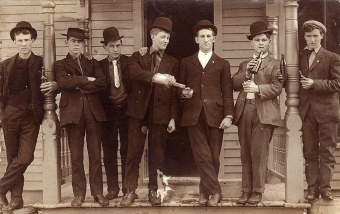 When Joseph Boyden writes, he takes an unusual approach to identifying the English speaking, working class, European as the “other”. This is a use of ulterior messaging that is used to assist in discovering information about the text that normally we would never have been able to make connections to. In this text example, “Today I wait for the others to get there before me […] The men are dressed in black and brown and gray suits, and the shoes upon their feet are shiny, so shiny that I wonder what kind of animal the leather has come from. All of the men wear hats, too. All these people wearing hats in summer. I do not understand” (Boyden, 3). We can see here how Niska, the prominent female character, feels misplaced in her own community due to the influx of Europeans arriving in Canada to fight in the war. The introduction of the Europeans who immigrated to Canada brought along with them traditions that ended up squandering those of the indigenous. These changes, although subtle, are examples of how Boyden’s ulterior messaging is highly effective. This is one of the more evident ways that Boyden exploits the cultural genocide that was taking place. When we focus on this more and begin to analyze the main characters through the lens of the outcast, we can see how this exclusion isn’t just a one-off event. Xavier, the protagonist in the story, says,
When Joseph Boyden writes, he takes an unusual approach to identifying the English speaking, working class, European as the “other”. This is a use of ulterior messaging that is used to assist in discovering information about the text that normally we would never have been able to make connections to. In this text example, “Today I wait for the others to get there before me […] The men are dressed in black and brown and gray suits, and the shoes upon their feet are shiny, so shiny that I wonder what kind of animal the leather has come from. All of the men wear hats, too. All these people wearing hats in summer. I do not understand” (Boyden, 3). We can see here how Niska, the prominent female character, feels misplaced in her own community due to the influx of Europeans arriving in Canada to fight in the war. The introduction of the Europeans who immigrated to Canada brought along with them traditions that ended up squandering those of the indigenous. These changes, although subtle, are examples of how Boyden’s ulterior messaging is highly effective. This is one of the more evident ways that Boyden exploits the cultural genocide that was taking place. When we focus on this more and begin to analyze the main characters through the lens of the outcast, we can see how this exclusion isn’t just a one-off event. Xavier, the protagonist in the story, says,
“They speak so fast, and never mess up, even after 6 months of learning I still can’t
seem to even have conversations with them.” (Boyden, 154).
Xavier goes out of his way to learn English in order to be able to communicate ith the people he is fighting alongside in the war. The war is taking place in his own country and the people he’s fighting with don’t even speak the native language! This shows the extent of what the indigenous people went through in order to conform to the ideals and customs of the Europeans. The ulterior message behind the language barrier with Xavier, Nishka and Elijah’s lack of foreign tongue directly relates to the value of their lives in the minds of the Europeans. When placed into a war, that they had no say in, since they can’t communicate with the Europeans, they’re placed on the front lines of a battle and given the dangerous duties because of the lack of communication and ability to make friendships with the Europeans.
These p roblems have affected Canada for years to come, and the events that took place in Canada 80 years ago still linger today in the forms of lack of education, high percentages of people with addiction, and extremely high suicide rates. The Canadian Institute of Health states that “the suicide rate among Aboriginal youth (ages 18-24) is five to six times higher than that of any other youth groups.” This number has various contributing factors that stem from location, quality of life and the use of drugs. The use of drugs in Aboriginal communities is a problem that has gone unaddressed for many years, and a report by Naho (a first nations news source partnered with Regional Health Survey) shows that “Inuit communities have been even more impacted by illicit drugs, […] cocaine and solvents. Illicit drug users in the 12 months preceding a survey by the Nunavik Inuit Health Society in Nunavik was 60%, more than four times higher than that observed in Canada. It shows that the rates of drug use have clearly increased over the past decade.” Although these statistics are astonishing very little is being done to combat them. These problems also seem to come from the lack of education – the highest dropout rate in Canadian high schools is from aboriginal students. This lack of education leads to poor job selection and unemployment. “According to lead author Dr. Carlos Nordt, of Zurich University’s Psychiatric Hospital, it is not just losing a job but the stressful and uncertain months before it happens, when companies might be looking to make redundancies, that cause suicides.” The unemployment rate coupled with the use of drugs is one of the largest factors contributing to Canada’s suicide epidemic sweeping through the aboriginal people. Joseph Boyden’s Three Day Road does a perfect job accounting the events such as residential schooling, and colonial oppression, etc. that caused this current epidemic.
roblems have affected Canada for years to come, and the events that took place in Canada 80 years ago still linger today in the forms of lack of education, high percentages of people with addiction, and extremely high suicide rates. The Canadian Institute of Health states that “the suicide rate among Aboriginal youth (ages 18-24) is five to six times higher than that of any other youth groups.” This number has various contributing factors that stem from location, quality of life and the use of drugs. The use of drugs in Aboriginal communities is a problem that has gone unaddressed for many years, and a report by Naho (a first nations news source partnered with Regional Health Survey) shows that “Inuit communities have been even more impacted by illicit drugs, […] cocaine and solvents. Illicit drug users in the 12 months preceding a survey by the Nunavik Inuit Health Society in Nunavik was 60%, more than four times higher than that observed in Canada. It shows that the rates of drug use have clearly increased over the past decade.” Although these statistics are astonishing very little is being done to combat them. These problems also seem to come from the lack of education – the highest dropout rate in Canadian high schools is from aboriginal students. This lack of education leads to poor job selection and unemployment. “According to lead author Dr. Carlos Nordt, of Zurich University’s Psychiatric Hospital, it is not just losing a job but the stressful and uncertain months before it happens, when companies might be looking to make redundancies, that cause suicides.” The unemployment rate coupled with the use of drugs is one of the largest factors contributing to Canada’s suicide epidemic sweeping through the aboriginal people. Joseph Boyden’s Three Day Road does a perfect job accounting the events such as residential schooling, and colonial oppression, etc. that caused this current epidemic.
 Some have acclaimed that Joseph Boyden’s novel Three Day Road as an honest account of Canadian history. When I personally think about this book and ask myself questions about the book, I am left confused. The main question I am left asking myself is what he had to gain from writing it. I’ve been taught that taking the stories of a culture and its tradition and appropriating them as your own is known to be “textbook colonialism.” So, if that’s true, did Joseph Boyden not just steal a story about the Cree people and appropriate it into a book to profit from? If so, doesn’t that discredit his entire message?
Some have acclaimed that Joseph Boyden’s novel Three Day Road as an honest account of Canadian history. When I personally think about this book and ask myself questions about the book, I am left confused. The main question I am left asking myself is what he had to gain from writing it. I’ve been taught that taking the stories of a culture and its tradition and appropriating them as your own is known to be “textbook colonialism.” So, if that’s true, did Joseph Boyden not just steal a story about the Cree people and appropriate it into a book to profit from? If so, doesn’t that discredit his entire message?
Work Cited
Unemployment
Drug use
http://www.naho.ca/blog/2011/06/27/drug-abuse-major-concern-among-first-nations-and-inuit/http://
Suicide Rate
http://www.ctvnews.ca/health/suicide-among-canada-s-first-nations-key-numbers-1.2854899
Joseph Boyden’s background
https://thewalrus.ca/why-is-joseph-boydens-indigenous-identity-being-questioned/
Where to buy Three Day Road

 Time as flown by almost instantly and as most of you know, it is finally that time of the year – finals. After slugging my way through Joseph Boyden’s Three Day Road and doing archetypal theory, feminist theory, reader response theory and colonial analysis, we have finally made it to the last blog post. This blog will focus on my portfolio. The thesis I will be using is this: Three Day Road uses ulterior messaging through the main characters’ life stories to exploit the cultural genocide caused by residential schooling, capitalism, and colonialism which affected indigenous people in Canada for decades, and even today, we can still see how these events are affecting Canada tremendously.
Time as flown by almost instantly and as most of you know, it is finally that time of the year – finals. After slugging my way through Joseph Boyden’s Three Day Road and doing archetypal theory, feminist theory, reader response theory and colonial analysis, we have finally made it to the last blog post. This blog will focus on my portfolio. The thesis I will be using is this: Three Day Road uses ulterior messaging through the main characters’ life stories to exploit the cultural genocide caused by residential schooling, capitalism, and colonialism which affected indigenous people in Canada for decades, and even today, we can still see how these events are affecting Canada tremendously. 
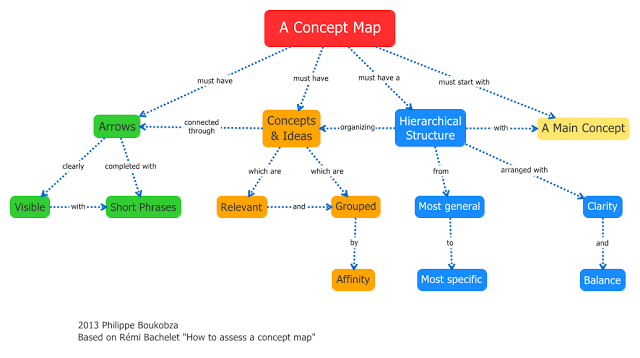
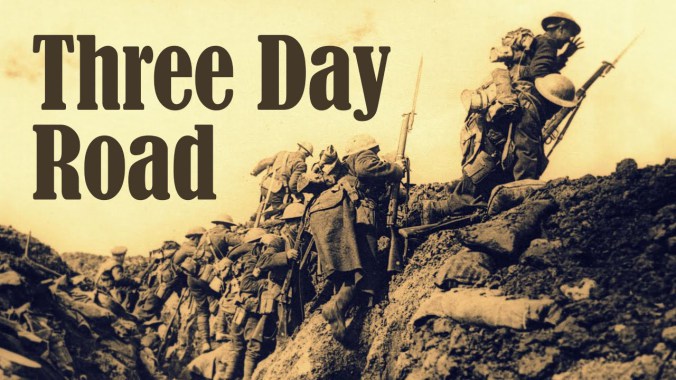 Now that I have finally finished my trip down Three Day Road by Joseph Boyden and
Now that I have finally finished my trip down Three Day Road by Joseph Boyden and  analyzed the text using the reader response archetypal theory and postcolonial theory, I have decided that although reader response and archetypal both helped me, postcolonial was what Joseph Boyden must have had in mind while writing this book. I believe that postcolonial theory is the best choice for analyzing this book because this theory assisted me in uncovering the true meaning of the book and helped me understand and relate to the characters.
analyzed the text using the reader response archetypal theory and postcolonial theory, I have decided that although reader response and archetypal both helped me, postcolonial was what Joseph Boyden must have had in mind while writing this book. I believe that postcolonial theory is the best choice for analyzing this book because this theory assisted me in uncovering the true meaning of the book and helped me understand and relate to the characters.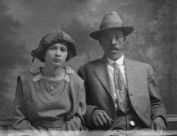 the “others,” he said “[…] today I wait for the others to get there before me before I step on them […] The men are dressed in black and brown and gray suits, and the shoes upon their feet are shiny, so shiny that I wonder what kind of animal the leather has come from. All of the men wear hats, too. All these people wearing hats in summer. I do not understand (Boyden, 3).” Niska, one of the main characters, felt out of place simply because she wasn’t dressed like everyone else around her. I personally related to this because the first time I went to the city of Toronto, I felt like I was an outsider because I wasn’t dressed like a businessman on their way to work. I didn’t feel like I belonged in the city. This is extremely similar to how the three main characters feel about the city they are in. Since they were all born in colonies, none of them grew up in a white collar society, so much like myself, they feel uncomfortable in cities. With the use of postcolonial perspective, I can fully understand how these characters were feeling by putting their situations into what I would typically consider “normal everyday experiences” that I can relate to.
the “others,” he said “[…] today I wait for the others to get there before me before I step on them […] The men are dressed in black and brown and gray suits, and the shoes upon their feet are shiny, so shiny that I wonder what kind of animal the leather has come from. All of the men wear hats, too. All these people wearing hats in summer. I do not understand (Boyden, 3).” Niska, one of the main characters, felt out of place simply because she wasn’t dressed like everyone else around her. I personally related to this because the first time I went to the city of Toronto, I felt like I was an outsider because I wasn’t dressed like a businessman on their way to work. I didn’t feel like I belonged in the city. This is extremely similar to how the three main characters feel about the city they are in. Since they were all born in colonies, none of them grew up in a white collar society, so much like myself, they feel uncomfortable in cities. With the use of postcolonial perspective, I can fully understand how these characters were feeling by putting their situations into what I would typically consider “normal everyday experiences” that I can relate to.

 Three Day Road by Joseph Boyden is a novel that requires the use of postcolonial theory to properly analyze and understand the events that take place throughout. The story takes place in a time where culture in Canada is the largest shift it has ever seen. I feel that Joseph Boyden creates an interesting and diverse way of looking at the problem by addressing what we know to be normal, as bizarre. Furthermore, he exploits the colonial oppression through various aspects of the text.
Three Day Road by Joseph Boyden is a novel that requires the use of postcolonial theory to properly analyze and understand the events that take place throughout. The story takes place in a time where culture in Canada is the largest shift it has ever seen. I feel that Joseph Boyden creates an interesting and diverse way of looking at the problem by addressing what we know to be normal, as bizarre. Furthermore, he exploits the colonial oppression through various aspects of the text.
 where he spent the majority of his adolescent years away from his family and deprived of his heritage. These schools were government sponsored religious schools established to assimilate indigenous children into Canadian Culture. Xavier and many others were taken from their parents and kept in harsh conditions, were frequently abused, neglected, and stripped of their basic needs such as washrooms and beds. What occurred in these schools has since been recognized as cultural genocide.
where he spent the majority of his adolescent years away from his family and deprived of his heritage. These schools were government sponsored religious schools established to assimilate indigenous children into Canadian Culture. Xavier and many others were taken from their parents and kept in harsh conditions, were frequently abused, neglected, and stripped of their basic needs such as washrooms and beds. What occurred in these schools has since been recognized as cultural genocide. lines of the attack, this just shows how little his life was valued. Indigenous people did not want to be involved in the war, but it was initiated by a prime minister that the Cree people didn’t even have the human rights to vote for. When Xavier and other Cree people were actively in the war they faced a huge language barrier which forced them to the bottom of the social ladder. They were forced to learn the English language or be viewed as outcasts by the Europeans who were supposed to be fighting alongside them. Through this Joseph Boyden contrasts the treatment of the indigenous people in the Residential Schools, with that of the army. In both instances, Xavier was viewed as the lowest form of a person. Boyden’s exploration of Xavier’s life is just one of the ways he highlights the colonial oppression that was taking place in Canada.
lines of the attack, this just shows how little his life was valued. Indigenous people did not want to be involved in the war, but it was initiated by a prime minister that the Cree people didn’t even have the human rights to vote for. When Xavier and other Cree people were actively in the war they faced a huge language barrier which forced them to the bottom of the social ladder. They were forced to learn the English language or be viewed as outcasts by the Europeans who were supposed to be fighting alongside them. Through this Joseph Boyden contrasts the treatment of the indigenous people in the Residential Schools, with that of the army. In both instances, Xavier was viewed as the lowest form of a person. Boyden’s exploration of Xavier’s life is just one of the ways he highlights the colonial oppression that was taking place in Canada.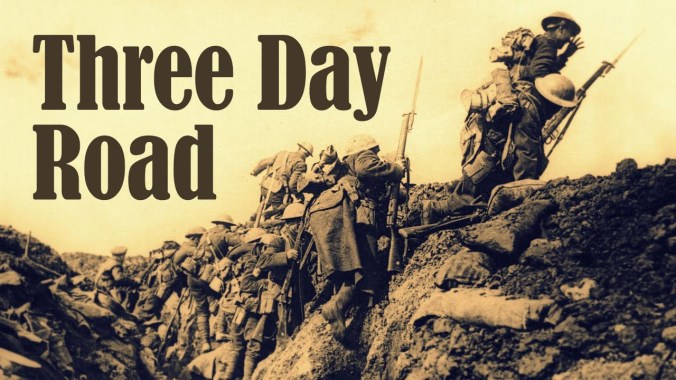

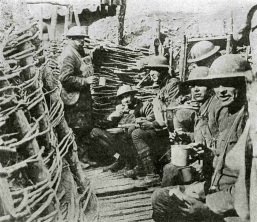 y would treat him differently, so he conformed and tried to become one of them. Similarly, Xavier would also be considered an
y would treat him differently, so he conformed and tried to become one of them. Similarly, Xavier would also be considered an  “It was the lynx that came to me most strongly, his growl puffing out the walls of my tent like a great wind trying to escape. And I asked
“It was the lynx that came to me most strongly, his growl puffing out the walls of my tent like a great wind trying to escape. And I asked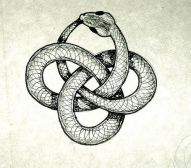 the context of nature. One of my personal favourites is this quote,
the context of nature. One of my personal favourites is this quote, 









